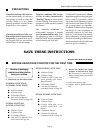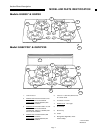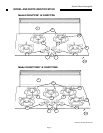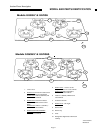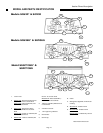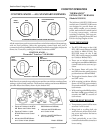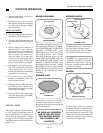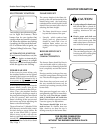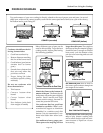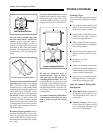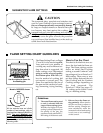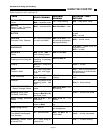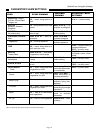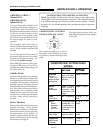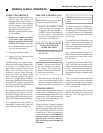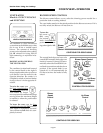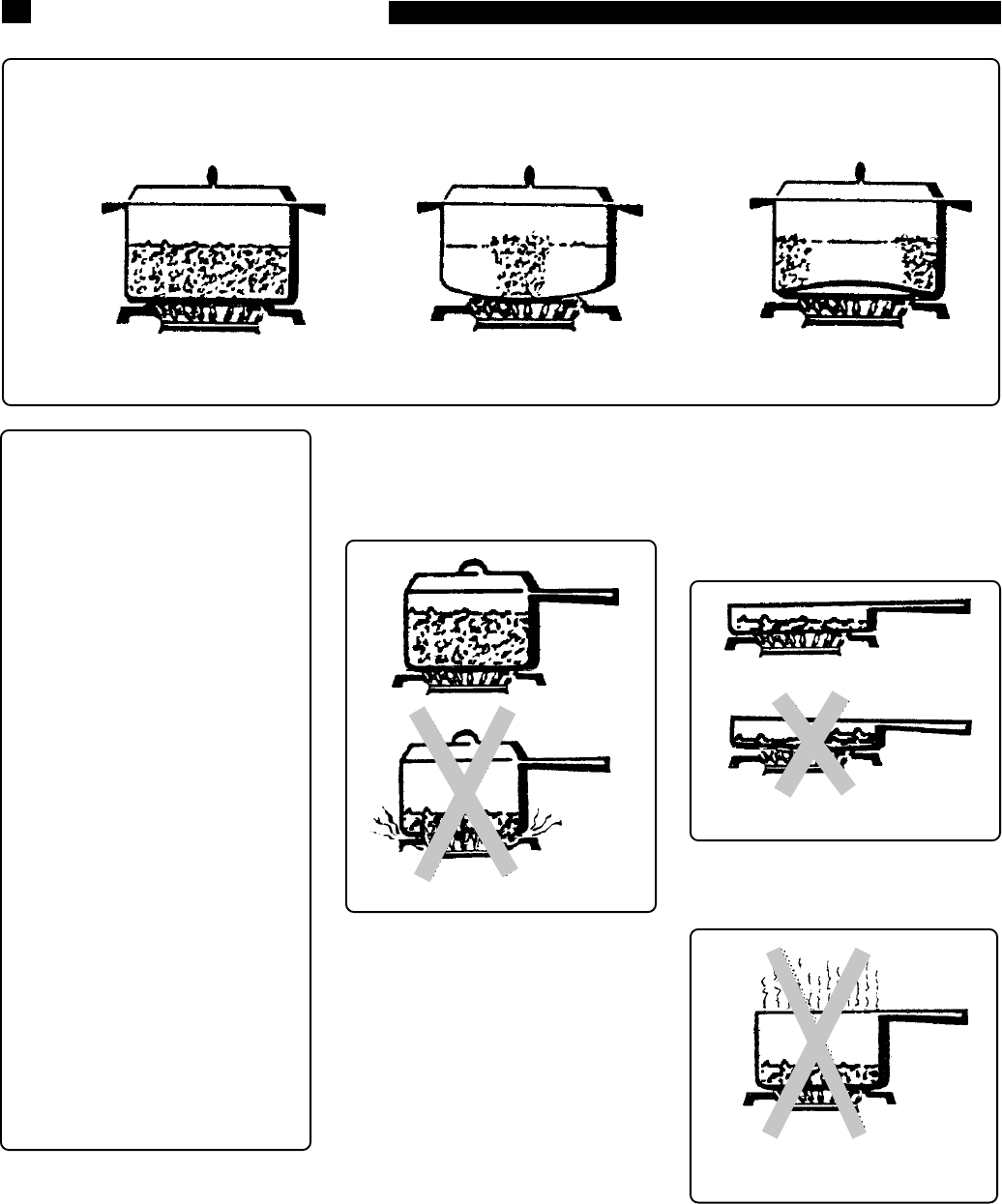
Section Four: Using the Cooktop
FLAT
CONVEX (rounded)
CONCAVE (hollow)
Balanced Pan
Unbalanced Pan
Use balanced pans that sit level on
the burner grate without tilting from
the weight of the handle.
Use Lids that fit Properly
Use lids that fit the cookware prop-
erly to help shorten cooking time
and to allow food to cook in a mini-
mum amount of liquid on a lower
heat setting.
PROPER COOKWARE
Match the flame to the bottom di-
ameter of the pan. The flame should
be the same size as the pan or slightly
smaller. Small utensils and high
flames result in energy loss and in-
crease the potential for burns.
Use cookware that has good heat
conductive qualities. Metal cook-
ware that has copper or aluminum
imbedded in a stainless steel disk
bottom (“tri-ply construction”) con-
ducts heat better than other cook-
ware.
Use medium to heavy gauge pans.
These pans resist warping and last
Match Flame Size to Pan Size
Many different types of pans can be
used on this cooktop. To get the best
cooking results, choose pans having
the following qualities:
Cookware should have the fol-
lowing characteristics:
s Good heat conductivity
s Bottom diameter matching
the size of the burner used
s Good balance (pan bottom
remains level on burner
grate)
s Smooth, heavy bottom that
does not warp when hot;
provides even heat
s Proper fitting lid (when
needed for specific cooking
methods)
Do not use cookware with
these characteristics:
s Thin bottom
s Concave bottom when
heated
s Convex bottom when
heated
s Poor balance (rocks back
from weight of handle)
longer than thin pans. The weight or
thickness of the pan material (gauge)
should be heavy enough to conduct
heat evenly over the bottom of the
pan for even browning and to avoid
scorching.
Top performance of your new cooktop is directly related to the use of proper pots and pans. An out-of-
shape pan, without a lid, cannot possibly cook with the same speed and evenness as a pan with a heavy,
flat bottom and a good fitting lid.
Page 14



